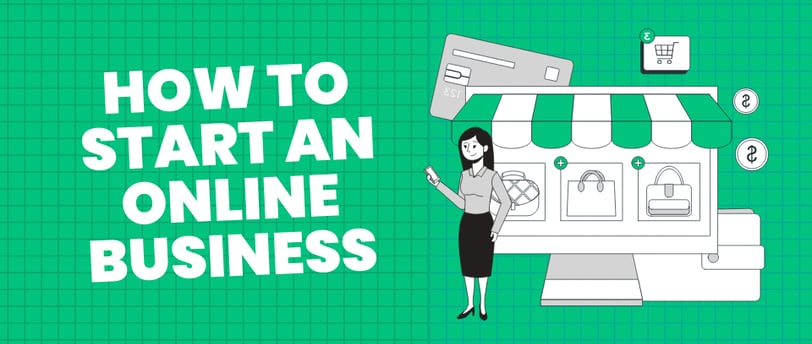How to Start an Online Business
Learn how to start an online business from scratch in 2025 with this beginner-friendly guide. Discover top business models, tools, and tips to launch and grow your digital brand.
LEARNING TIPS
Desta Edward
5/24/20254 min read


The rise of the internet has transformed the way people shop, communicate, and do business; Starting an online business has never been more accessible or more competitive; Whether you are aiming to build a side hustle or launch a full-time enterprise, this guide will walk you through each essential step to help you start and grow your online business successfully.
1. Define Your Business Idea
The foundation of any successful business begins with a solid idea; while it may be tempting to dive in headfirst, it's crucial to take time to refine your concept. Consider the following:
Your Passion and Skills: What are you good at, or what do you enjoy doing? Businesses rooted in personal interest are more sustainable in the long run.
Market Demand: Use tools like Google Trends, keyword research, and forums (like Reddit or Quora) to gauge what people are looking for.
Profit Potential: Can your idea realistically make money? Examine your competition & see what they're charging.
Popular online business ideas include:
E-commerce (selling physical or digital products)
Dropshipping
Online courses and coaching
Freelance services
Blogging and content creation
Affiliate marketing
2. Conduct Market Research
Market research will validate your idea and help you to understand your audience. This step ensures you are not building a product or service nobody wants.
Key research areas:
Target Audience: Identify demographics, interests, pain points, and buying habits.
Competitor Analysis: Who are your main competitors, what do they offer, and what are their strengths and weaknesses?
Market Gaps: Find opportunities where competitors are falling short. This might be in pricing, customer service, or unique product features.
Tools like SEMrush, Ahrefs and BuzzSumo can help you to analyse competitors and industry trends.
3. Choose a Business Model
How you generate income is just as important as what you offer. There are several online business models to consider:
E-commerce Store: Sell your own physical or digital products via platforms like Shopify or WooCommerce.
Dropshipping: Sell products you don’t physically stock. Suppliers handle the inventory and shipping.
Subscription Model: Offer a product or service regularly (monthly boxes, premium memberships).
Freelancing or Consulting: Provide skills based services such as writing, design, coding or marketing.
Affiliate Marketing: Promote other businesses' products and earn a commission for each sale made through your referral.
Digital Products: Sell ebooks, templates, courses or software.
Choose the model that aligns best with your skills, budget and time commitment.
4. Register Your Business
Even if your business operates solely online, it still needs to be legally registered, not only to protect you but also to give your brand legitimacy.
Steps to follow:
Choose a Business Name: Make it unique, relevant, and easy to remember. Check domain availability simultaneously.
Register Your Business: Choose a legal structure (e.g., sole proprietorship, LLC, or corporation). Requirements vary by country or region.
Get Necessary Licenses: Depending on what you're selling and where you're located, you may need permits or sales tax licenses.
Open a Business Bank Account: Keep your finances separate and professional.
5. Build Your Online Presence
Your website is your digital storefront. It should be visually appealing, easy to navigate, and optimised for conversions.
Website Essentials:
Domain Name: Choose a short, memorable name (e.g., yourbusiness.com).
Website Builder or Platform: Use platforms like Shopify, WordPress, or Squarespace.
Professional Design: Invest in clean, responsive design. Your website should look great on desktop and mobile.
Key Pages to Include:
Home
About Us
Products/Services
Contact Page
FAQs
Privacy Policy & Terms
If you’re not tech-savvy, hiring a freelance web developer can save time and ensure quality.
6. Set Up Payment Processing
A seamless checkout experience boosts customer trust and sales.
Popular options:
Stripe
PayPal
Square
Shopify Payments (if you use Shopify)
Make sure your website is SSL-certified (HTTPS) to secure customer data.
7. Create a Marketing Plan
Once your site is live, your next challenge is attracting visitors and converting them into customers.
Key Online Marketing Strategies:
Search Engine Optimisation (SEO): Optimise your site and content to rank higher in search engines.
Content Marketing: Create valuable content (blogs, videos, guides) that resonates with your audience.
Email Marketing: Build a list and stay connected with newsletters, product launches, and promotions.
Social Media Marketing: Use platforms like Instagram, TikTok, Facebook, and LinkedIn to promote your brand.
Paid Advertising: Run ads on Google, Facebook, or Instagram to drive targeted traffic.
Start small, test different strategies, and scale what works.
8. Launch Your Business
With all the groundwork laid, it’s time to go live.
Tips for a successful launch:
Pre-launch Buzz: Tease your launch on social media and to your email list.
Offer Promotions: Discounts or giveaways can attract initial buyers.
Gather Reviews Early: Positive reviews build credibility and trust.
Monitor Everything: Track metrics like traffic, bounce rate and sales to identify areas of improvement.
Launching is only the beginning; continuous learning and adapting are key.
9. Manage and Grow Your Business
After the launch, focus on sustainability and long-term growth.
Post-launch Priorities:
Customer Service: Respond quickly, solve problems efficiently and create loyalty.
Analytics: Use tools like Google Analytics and Hotjar to see what’s working.
Inventory & Fulfilment: Stay organised and ensure timely delivery (especially if you're not dropshipping).
Automate When Possible: Use tools like Zapier, Mailchimp or HubSpot to streamline tasks.
Scaling Ideas:
Introduce new products or services
Expand to new markets or platforms (e.g., Amazon, Etsy)
Invest in more aggressive marketing
Collaborate with influencers or affiliates
Final Thoughts
Starting an online business is an exciting, rewarding journey, but it takes planning, patience and persistence. While you don’t need to have everything perfect from day one, following the steps outlined above can dramatically increase your chances of success.
Remember, every big business once started small, focus on delivering value, build genuine relationships with your audience and continually refine your approach based on feedback and results.
TL;DR – Quick Recap
Refine your idea
Research the market
Choose the right business model
Register legally
Build a website
Set up payments
Create a marketing plan
Launch with confidence
Focus on growth and customer satisfaction
Ready to start your journey? Your online business won’t build itself; start today, and you’ll thank yourself tomorrow.
